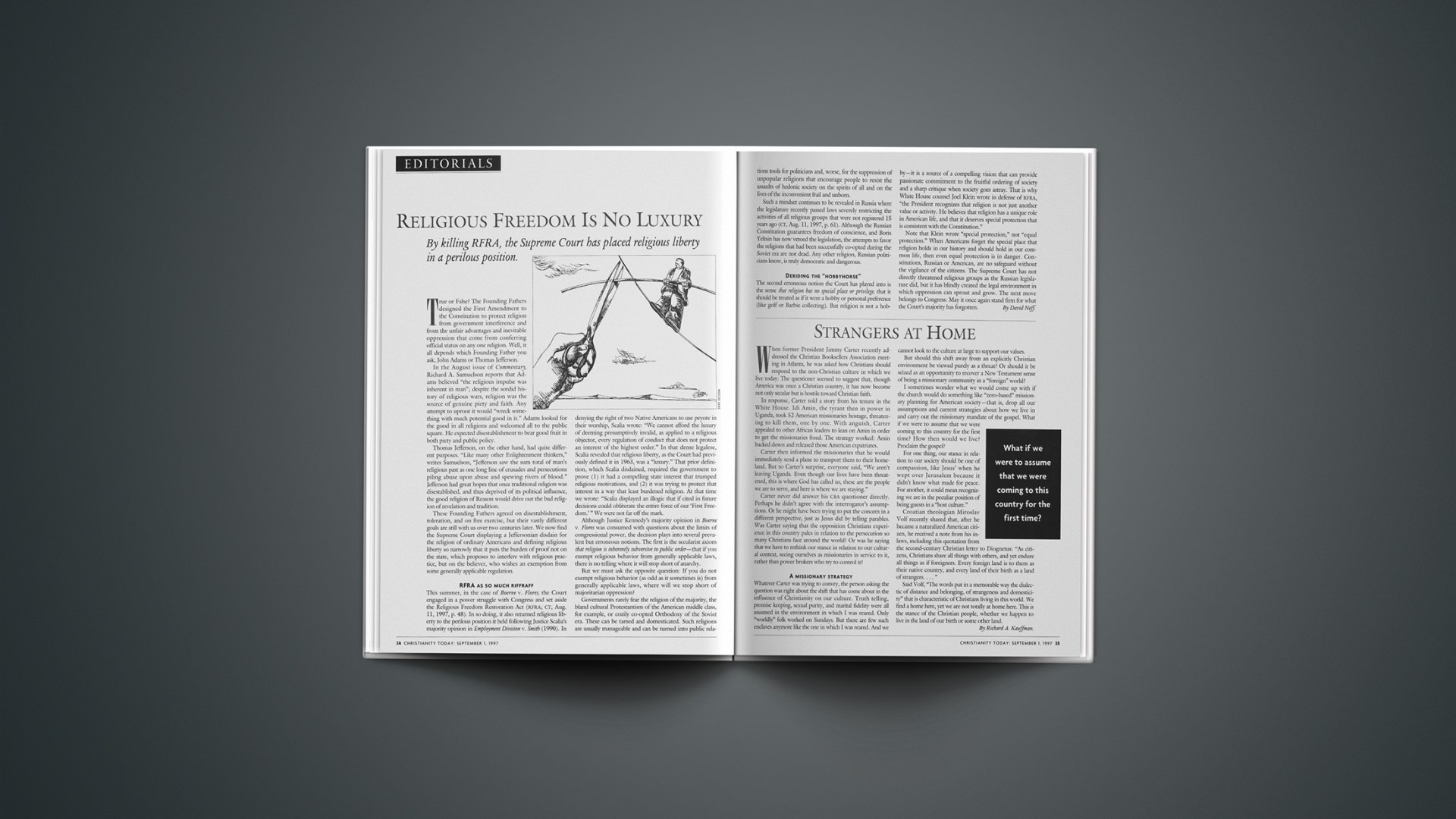When former President Jimmy Carter recently addressed the Christian Booksellers Association meeting in Atlanta, he was asked how Christians should respond to the non-Christian culture in which we live today. The questioner seemed to suggest that, though America was once a Christian country, it has now become not only secular but is hostile toward Christian faith.
In response, Carter told a story from his tenure in the White House. Idi Amin, the tyrant then in power in Uganda, took 52 American missionaries hostage, threatening to kill them, one by one. With anguish, Carter appealed to other African leaders to lean on Amin in order to get the missionaries freed. The strategy worked: Amin backed down and released those American expatriates.
Carter then informed the missionaries that he would immediately send a plane to transport them to their homeland. But to Carter's surprise, everyone said, "We aren't leaving Uganda. Even though our lives have been threatened, this is where God has called us, these are the people we are to serve, and here is where we are staying."
Carter never did answer his CBA questioner directly. Perhaps he didn't agree with the interrogator's assumptions. Or he might have been trying to put the concern in a different perspective, just as Jesus did by telling parables. Was Carter saying that the opposition Christians experience in this country pales in relation to the persecution so many Christians face around the world? Or was he saying that we have to rethink our stance in relation to our cultural context, seeing ourselves as missionaries in service to it, rather than power brokers who try to control it?
A missionary strategy Whatever Carter was trying to convey, the person asking the question was right about the shift that has come about in the influence of Christianity on our culture. Truth telling, promise keeping, sexual purity, and marital fidelity were all assumed in the environment in which I was reared. Only "worldly" folk worked on Sundays. But there are few such enclaves anymore like the one in which I was reared. And we cannot look to the culture at large to support our values.
But should this shift away from an explicitly Christian environment be viewed purely as a threat? Or should it be seized as an opportunity to recover a New Testament sense of being a missionary community in a "foreign" world?
I sometimes wonder what we would come up with if the church would do something like "zero-based" missionary planning for American society—that is, drop all our assumptions and current strategies about how we live in and carry out the missionary mandate of the gospel. What if we were to assume that we were coming to this country for the first time? How then would we live? Proclaim the gospel?
For one thing, our stance in relation to our society should be one of compassion, like Jesus' when he wept over Jerusalem because it didn't know what made for peace. For another, it could mean recognizing we are in the peculiar position of being guests in a "host culture."
Croatian theologian Miroslav Volf recently shared that, after he became a naturalized American citizen, he received a note from his in-laws, including this quotation from the second-century Christian letter to Diognetus: "As citizens, Christians share all things with others, and yet endure all things as if foreigners. Every foreign land is to them as their native country, and every land of their birth as a land of strangers. … "
Said Volf, "The words put in a memorable way the dialectic of distance and belonging, of strangeness and domesticity" that is characteristic of Christians living in this world. We find a home here, yet we are not totally at home here. This is the stance of the Christian people, whether we happen to live in the land of our birth or some other land.
Copyright © 1997 Christianity Today. Click for reprint information.










